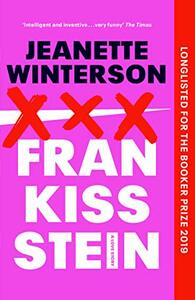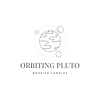Take a photo of a barcode or cover
This book is FANTASTIC. Unlike anything i’ve read so far; a book for this exact moment in time, so so smart, and incredibly funny too.
Well, Frankissstein is not at all what I expected it to be— I was expecting a typical romance novel, complete with total lack of substantial plot, gratuitous sex, and overly-obvious/ poorly written description. Frankissstein was different, though I wouldn't say I loved it, I was interested.
The book is structured in an unconventional way, jumping between historical fiction of Mary Shelley's life and sci-fi of a present/ near future in which all the characters mirror the poets or characters from Shelley's Frankenstein. Both sections deal with questions of gender, sexuality, progress, technology, and the central question of how much power should humans really have? I much preferred Mary Shelley's narrative of her life and creations over Ry Shelley's romance with a mad scientist, but overall, I'm left impressed, and just the right amount of confused confused.
The book is structured in an unconventional way, jumping between historical fiction of Mary Shelley's life and sci-fi of a present/ near future in which all the characters mirror the poets or characters from Shelley's Frankenstein. Both sections deal with questions of gender, sexuality, progress, technology, and the central question of how much power should humans really have? I much preferred Mary Shelley's narrative of her life and creations over Ry Shelley's romance with a mad scientist, but overall, I'm left impressed, and just the right amount of confused confused.
dark
mysterious
reflective
tense
medium-paced
Plot or Character Driven:
A mix
Strong character development:
No
Loveable characters:
No
Diverse cast of characters:
Yes
Flaws of characters a main focus:
Yes
I preferred two of the storylines far more than one, which took me out of the book a bit. Lots of philosophical musings, so be prepared for that.
WTH….the constant deadnaming of Ry is one of many major problems.
Moderate: Deadnaming
It tried so hard to be something new and interesting but for me it just didn't cut it.
adventurous
fast-paced
Plot or Character Driven:
Character
Strong character development:
Yes
Loveable characters:
Yes
Diverse cast of characters:
Yes
Flaws of characters a main focus:
No
While I have a huge literary crush on Jeanette Winterson, and while I loved parts of this novel, its flaws were also disturbingly apparent. First of all, from a character and plot perspective, this novel is very shallow--especially given its length. Now this doesn't necessarily bother me as I think the "Either character or plot based" dichotomy is just another false binary, much like the false gender binary that this novel partially, and a bit clumsily, also questions. I'm not 100% CIS, being an emotionally sensitive and non-physical-minded, not muscly, nor violent, nor macho male, so the trans character/narrator seemed, to me from my innocent perspective, ok. However, I see from some other reviewers here the portrayal's flaws from their perspectives and am tempted to agree. Even if I'm mostly against forcing fiction writers only to produce role-model characters, ignoring the vagaries of all of our perverse little individualities.
Also, sadly--and not Ms. Winterson's fault necessarily--the Villa Diodati thing has already been done to death in film and TV, so that kind of bored me at the start. But, like most things in this novel, once it got going, I fell into sync with it and it began to work well enough. Once the Mary Shelley character moved on from the famous Villa and scenes of the "inclement summer" of 1818 (which weather reports of the era belie apparently), she became more complex, more interesting, and thus a better read.
My most salient interpretation, and to hold up what I think is best about the novel, is that it's what we might call a thoughtful or meditative novel. It's neither Plot, character, nor even theme-based or driven. Rather it starts, I believe, with a thought or concept--the creation of Frankenstein's monster both in Mary Shelley's imagination and then on the page--and, as the human brain is wont to do, the novel's narrative free-associates to Cryonics, AI, sexbots, Christianity and all religions, gender issues, trans-gender and then trans-humanism, all topics loosely associated with the philosophical questions raised by Shelley's famous novel of a scientist/alchemist who creates a man in his dorm room. Yes, along the way the thoughts make use of cliche, shorthand, flippancy, drollery, and, yes, maybe even a bit of culture-absorbed binary prejudice, in order to illustrate its spiraling thoughts and associations. Thus its lightness and easiness in some categories in order to explore pure ideas. If you read for the ideas I think you will appreciate it very much. But, if you need a thrilling plot, believable and exemplary characters, then I think you will be a bit disappointed.
Also, sadly--and not Ms. Winterson's fault necessarily--the Villa Diodati thing has already been done to death in film and TV, so that kind of bored me at the start. But, like most things in this novel, once it got going, I fell into sync with it and it began to work well enough. Once the Mary Shelley character moved on from the famous Villa and scenes of the "inclement summer" of 1818 (which weather reports of the era belie apparently), she became more complex, more interesting, and thus a better read.
My most salient interpretation, and to hold up what I think is best about the novel, is that it's what we might call a thoughtful or meditative novel. It's neither Plot, character, nor even theme-based or driven. Rather it starts, I believe, with a thought or concept--the creation of Frankenstein's monster both in Mary Shelley's imagination and then on the page--and, as the human brain is wont to do, the novel's narrative free-associates to Cryonics, AI, sexbots, Christianity and all religions, gender issues, trans-gender and then trans-humanism, all topics loosely associated with the philosophical questions raised by Shelley's famous novel of a scientist/alchemist who creates a man in his dorm room. Yes, along the way the thoughts make use of cliche, shorthand, flippancy, drollery, and, yes, maybe even a bit of culture-absorbed binary prejudice, in order to illustrate its spiraling thoughts and associations. Thus its lightness and easiness in some categories in order to explore pure ideas. If you read for the ideas I think you will appreciate it very much. But, if you need a thrilling plot, believable and exemplary characters, then I think you will be a bit disappointed.
adventurous
reflective
medium-paced
Plot or Character Driven:
A mix
Strong character development:
Yes
Loveable characters:
Yes
Diverse cast of characters:
Yes
Flaws of characters a main focus:
Complicated
Wow! This book is really out there, in the most wonderful way. It made me want to read everything Jeanette Winter son’s ever written. It’s also one of those books that ends and you immediately want to reread it because you know you’ll notice and put together new things each time you do— I still sort of have no idea what happened, but also it all makes such perfect, creepy sense. I love the voices of both of our main narrators, Mary Shelley and Dr. Ry Shelley, and found myself growing to love each one of their completely ridiculous companions. Highly recommend this, as long as you can handle some (really good) smut and can keep a wide open mind.
the imagined mary shelley bits were fine, but treatment of trans protagonist felt really bizarre and bad; it never really got going it just got weird






